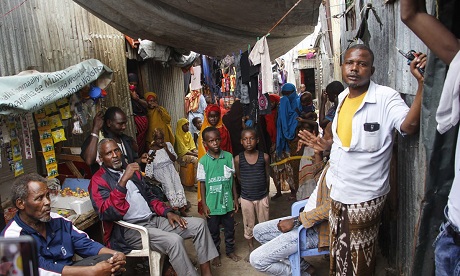Internally displaced citizen numbers now account for over 50 million people, according to a recent study.
Their needs are the focus of new guidelines Pope Francis and the Vatican have just released.
“In this time of pandemic, the virus does not seem to distinguish between those who are important and those who are invisible, those who are settled and those who are displaced. Everyone is vulnerable and each infection is a danger for everyone,” Cardinal Michael Czerny said at a news conference this week.
Czerny is the undersecretary of the migrants and refugees section of the Vatican Dicastery for Promoting Integral Human Development.
“In the post COVID-19 world that is emerging, the contribution of internally displaced people — like everyone’s contribution — will be very much needed,” he added.
The Dicastery’s migrants and refugees section was created and is led by Pope Francis.
It’s purpose is to lead initiatives for the millions who are forced to leave their homes due to war, natural disasters and climate change.
The news conference was held to release a new publication called “Pastoral Orientations on Internally Displaced People.”
Inspired by Francis’ call to “welcome, protect, promote and integrate” all those who live “in the peripheries,” the new work invites Catholic parishes, nongovernmental organizations and dioceses to champion internally displaced people.
Millions were displaced in Syria after the Islamic State group destroyed Syrian towns and cities.
Internally displaced children are at risk of exploitation or trafficking in Kurdistan.
In Myanmar, persecuted Rohingya Muslim communities are unable to access clean water during the current pandemic.
There are also internally displaced people are also right beneath our noses, Czerny noted. They are mong the homeless and destitute.
The new publication invites parishes to discover internally displaced people in their community and find ways to cater to spiritual and basic needs.
Often these people struggle to gain public and social recognition. In some countries their human rights are trampled. At present, they have a higher risk of contracting COVID-19 and many are forgotten in the frenzied efforts to limit contagions.
Another Dicastery member, Fr Fabio Baggio, says it is important to recognise the “invisibility and vulnerability” internally displaced people face in the pandemic.
In addition, Baggio says “we must not forget about other emergencies and those still to come.” These could include numerous disasters, challenges and changes.
Part of the Church’s efforts includes engaging in dialogue with other religious communities and working together for common goals and shared principles. This interreligious “trend” in the Church is essential, he says.
The newly-released publication is part of a series of efforts and commitments the Church has made during Francis’s papacy.
These have included 20 pastoral action points for people working with immigrants and refugees.
The Dicastery has also published guidelines to combat human trafficking, which Francis calls “modern-day slavery.”
Future publications will focus on climate change impacts and the growing number of internally displaced people.
Source
